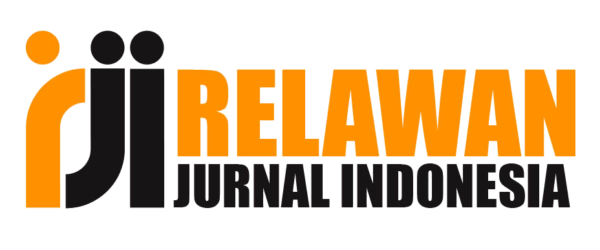Pengaruh kecerdasan emosional terhadap literasi digital praktikum virtual fisika pada sudut pandang gender mahasiswa
Abstract
Keywords
Full Text:
PDF (BAHASA INDONESIA)References
Baumann, J. F., & Duffy-Hester, A. M. (2001). Making sense of classroom worlds: Methodology in teacher research. In Methods of literacy research (pp. 11–32). Routledge.
Belshaw, D. (2012). What is’ digital literacy’? A Pragmatic investigation. Durham University.
Chapin, K. (2015). The Effect of Emotional Intelligence on Student Success. Journal of Adult Education, 44(1), 25–31.
Fitriastuti, T. (2013). Pengaruh kecerdasan emosional, komitmen organisasional dan organizational citizenship behavior terhadap kinerja karyawan. JDM (Jurnal Dinamika Manajemen), 4(2).
Hadiwijaya, H., & Hutasoit, G. (2017). Effect of emotional intelligence on student learning achievement. Muhammadiyah University Metro.
Mohammadyari, S., & Singh, H. (2015). Understanding the effect of e-learning on individual performance: The role of digital literacy. Computers & Education, 82, 11–25.
Riduwan, & Akon. (2009). Belajar mudah penelitian: untuk guru karyawan dan peneliti pemula (6th ed.). Alfabeta.
Saibani, N., Sabtu, M. I., Muhamad, N., Abd Wahab, D., Sahari, J., & Deros, B. M. (2012). Comparison of emotional intelligence scores among engineering students at different stages of an academic program. Asian Social Science, 8(16), 88.
Śmieja, M., Orzechowski, J., & Stolarski, M. S. (2014). TIE: An ability test of emotional intelligence. PLoS One, 9(7), e103484.
Sumardi, L., Rohman, A., & Wahyudiati, D. (2020). Does the Teaching and Learning Process in Primary Schools Correspond to the Characteristics of the 21st Century Learning?. International Journal of Instruction, 13(3), 357–370.
Widyastuti, D. A., & Muyana, S. (2019). The Effect of Learning Motivation on Student Achievement on Statistics. 3rd International Conference on Education Innovation (ICEI 2019), 344–346.
Zakwandi, R., Wulansari, P., Atika, R. M., Suhandi, H., & Novia, A. (2022). Learning reflection during Covid-19 pandemic: teacher perception toward google form based test. International Journal of Education and Teaching Zone, 1(2), 123–131.
DOI: https://doi.org/10.17509/wapfi.v8i1.42767
Refbacks
- There are currently no refbacks.
Copyright (c) 2023 Riki Purnama Putra, Indy Ramadhanti, Shidiq Andhika, Rena Denya Agustina, Pina Pitriana

This work is licensed under a Creative Commons Attribution-ShareAlike 4.0 International License.
The Journal Wahana Pendidikan Fisika http://ejournal.upi.edu/index.php/WapFi/ is licensed under a Creative Commons Attribution-ShareAlike 4.0 International License
The Journal WaPFi (Wahana Pendidikan Fisika).
All rights reserverd. pISSN 2338-1027 eISSN 2685-4414
Copyright © Faculty of Mathematics and Science Education (FPMIPA) Universitas Pendidikan Indonesia (UPI)










